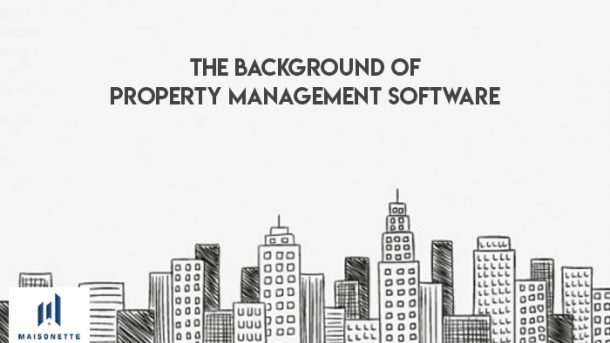It becomes an overwhelming task to manage multiple properties at the same time. Property managers need to market vacancies, run background screening while maintaining all their accounting records by owner and property. Property management software comes handy and as a one-stop solution for efficient management of all these activities
Property Management Software enables property managers to scale their real estate businesses. It reduces the manual work required by property managers and owners to a great extent. It saves countless hours and reduces the risk of missed tasks. Day to day operations of the property calls in for deployment of a real estate property management software. These solutions can manage many types of properties some of which are residential, commercial, hospitality, student housing etc.
Real Estate ERP software is known to manage activities like Sales, Marketing, Accounting, Procurement, etc. such that it adequately supports the realities of your business and propose cost-effective solutions to the problems of your company. Challenges like project planning and execution, cash flow visibility, regulatory compliances, and collaboration with service providers have to be met for a successful implementation of a real estate ERP software.
Before deploying a real estate property management software for your business, you must be aware of the fact that it all property management software is not the same. You may think you are familiar with all of the features it provides but the reality is something different. Hence, it is essential to understand the background of Property management software before actually implementing it for your business. Let’s begin.
Before purchasing any property management software, it’s important to figure out what features you’ll need. You might get fascinated with a full-featured version. However, your business might not require all the features. You must have a checklist with requirements and questions before approaching a vendor or making a purchasing decision. Few critical pointers to be kept in mind are:
Integration With Existing Systems:
The ability of the ERP software to be integrated into any system makes the information centralized and accessible anywhere and anytime. This is one of the most refreshing capabilities of the real estate software management system that has empowered the workforce to make quick decisions based on data and close deals quickly.
The business owner should take the responsibility of checking the compatibility of the software with other existing systems to avoid after work related to integration. He must also ensure that the users can adopt the newly added software easily. Easy integration with the pre-existing software provides flexible access to its users. It reduces the extra work needed to make it coherent and allows for efficient integration.
Scalability:
The Property Management should allow you to scale up or down according to the needs of your business. Customization and flexibility are like the cherry on the cake which makes the users fall in love with the ERP software. Being able to scale your business is a feature that every business owner would want to have. Changing needs driven by the changing economy demands the flexibility of the software if you’re planning to expand your real estate business. Also, you must check for multi-user facility within the software so that it can be used by business owners, property managers, as well as tenants if required.
Productivity is a hidden advantage that comes along with this feature. Let me tell you how. A flexible ERP software drives efficient utilization of the employee time thus increasing the potential productivity.
Cost and Growth Potential:
The real estate software should be a cost-effective initiative for the company while increasing its growth potential. You must ensure to check the scalable pricing plans that include more features for a higher price. You might not need all the features so judging the ERP software-only based on the characteristics it is providing would not be a wise option. When comparing prices from different vendors, you must take all the deployment methods into account as cloud-based software are cheaper compared to on-premise ones.
The parameter of the growth potential would help you judge if the ERP software were able to scale up your ROI while being cost effective. The real estate management software gives you a platform to analyze the business processes and have the right foundation to make improvements or innovations to business processes.
Demo & Support After Implementation:
Everyone in your organization is a newbie to the software, so having a demo in place would help the new users to get acquainted with the features of the software. It will help them see how it works, and which features can be helpful for them according to the nature of their work. Also, before you proceed with the actual purchase, you must check with the vendor if they are offering a free trial before they implement in real-time.
This feature is advantageous because it helps you and your employees to get hands-on experience with the software. Training and support after implement is an important feature that should not be missed out in any case. After the free trial ends and the ERP software is fully integrated with the existing systems, you must schedule a post-implementation training during which users and employees can put forward their concerns and find relevant solutions to their queries.
Feedback from Customers:
Feedback is a necessary check that can give you an idea about the performance of the software as well as the support that the vendor after the software is integrated fully. You must check for references of the companies that have the similar need as of yours. Vendors existing clients or previous customers can be a good source of information that should be considered before the purchase decision is made.
Taking feedback from the existing and past clients will give you inputs on not only the positive experiences but also the issues they faced with the software if any. You can then use this feedback to get an assurance on the post-implementation support related to the same.
Security and Knowledge:
As a business owner of a real estate enterprise, it is your prime responsibility to check if the ERP software is secure and capable of protecting the sensitive and valuable data of the company. This calls in for the complete usage knowledge of the software. The ERP solution provider must be well versed with the functionalities of the software and have relevant work experience in the industry.
This will ensure adequate and timely resolution to the client queries. Be it financial or personal; every data is raw. Hence it is a crucial responsibility to check through every piece of software ensure that it adheres to modern security standards and certificates. This will help you to take a wise decision while Real estate ERP software implementation.
As real estate businesses are expanding, better prioritization and resource allocation have targeted the improvement of the quality of service, cutting costs, and ensure clients, as well as tenants satisfaction. A real estate property management software is designed to meet the complex and heavy-duty functions of big businesses.
The complete lifecycle of a typical real-estate project depends upon the efficiency of the real estate ERP software that is being used. The ERP software is customized to fit sync up with multiple departments of a large corporation to carry out the analysis of big data and match their specific needs.
The above pointers will help you understand the background of the property management software and ensure its successful implementation. There are a plethora of choices available for you to choose the ERP for your organization. This is not indicative that all software will suit your need.
Hence, for a commendable ERP implementation, you’ll need to figure out a single best solution for automatically calculating, tracking and billing your real estate transactions, that will drive your business to the next level. To be aware of the full capabilities of your property management software you should be able to efficiently utilize your time, and improve collaboration and communication between management and accounting.
This will change the way you are doing business by streamlining the business operations while aiding common task automation giving a boost to overall efficiencies of the organization as a whole.


Nice blog! It is really worth sharing. Due to this, I got to learn about catalog management and it really helped me choose Counfreedise and their services for my e-commerce business.
The blog about ERP is very informative as it unfolds the background of ERP for real estate . There are many best ERP software for real estate that works with updated techniques which enhances the performance of ERP software for real estate .